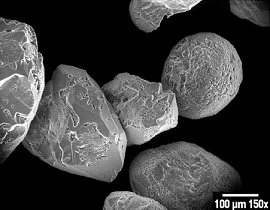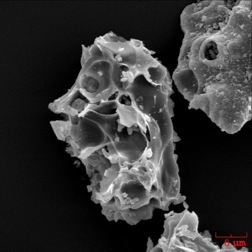Volcanic ash / Saharan dust
Thread Starter
Join Date: Aug 2007
Location: Dublin
Posts: 987
Likes: 0
Received 0 Likes
on
0 Posts
Volcanic ash / Saharan dust
Why wouldn't Saharan dust plumes affect aviation in the same way as the widely dispersed volcanic ash we are currently experiencing?
Waking up to find your car covered in the reddish Saharan dust is quite a regular occurrence here at 53° N but to the best of my knowledge it has never inconvenienced aviation operations here.
Waking up to find your car covered in the reddish Saharan dust is quite a regular occurrence here at 53° N but to the best of my knowledge it has never inconvenienced aviation operations here.
PPRuNe Handmaiden
Volcanic ash is very abrasive whereas dust is not nearly as abrasive.
Join Date: Dec 2006
Location: another hotel room
Posts: 25
Likes: 0
Received 0 Likes
on
0 Posts
Nearly but not quite. Saharan dust is made of sand, blunted by many years of rubbing up against other dust particles. It has a melting temperature of around 1350 C.
Most turbine engine tgt's are around 850 C.
Volcanic ash has a melting temp of around 600 C. it melts all over the cooling ducts of turbines thereby blocking them causing overheating and eventual failure.
The abrasive properties are an issue but not the main one.
Most turbine engine tgt's are around 850 C.
Volcanic ash has a melting temp of around 600 C. it melts all over the cooling ducts of turbines thereby blocking them causing overheating and eventual failure.
The abrasive properties are an issue but not the main one.
PPRuNe Handmaiden
Thanks for that, I'll use it tomorrow explaining to the pax. (If we go flying...)
Join Date: Jan 2010
Location: brighton
Posts: 136
Likes: 0
Received 0 Likes
on
0 Posts
worked in the middle east many years ago and rumour was their engines cleaner/ better than european carriers due to the abrasiveness of the sand
maybe someone more clued up could elaborate
maybe someone more clued up could elaborate
Join Date: Feb 2008
Location: Abu Dhabi
Posts: 294
Likes: 0
Received 0 Likes
on
0 Posts
If you look at the turbine section, then yes they "look" cleaner but then again the sand would have had a detrimental effect on the gas path coatings. Airlines flying over deserts would always have indications of sand ingestion, generally showing up inside the cooled blading itself with silica deposits etc.
From a serviceability and repair perspective, sulphidation is a much more serious problem. It won't stop an engine, but it will scrap out a lot of blading at overhaul.
From a serviceability and repair perspective, sulphidation is a much more serious problem. It won't stop an engine, but it will scrap out a lot of blading at overhaul.
Join Date: Nov 2009
Location: The Antipodes
Posts: 15
Likes: 0
Received 0 Likes
on
0 Posts
Regarding the abrasive properties of Sand vs. Volcanic Ash, if you had an electron microscope handy with samples of both available, you would be able to tell the difference in abrasiveness simply by looking at them. Fortunately, such images are also available online.
First, Sand:

Second, Volcanic Ash:

However, as previously mentioned, the abrasion on the airframe and compressor blades in the engines is a secondary consideration to the melting of ash in the combustion chamber and turbine blades in the engines.
First, Sand:

Second, Volcanic Ash:

However, as previously mentioned, the abrasion on the airframe and compressor blades in the engines is a secondary consideration to the melting of ash in the combustion chamber and turbine blades in the engines.




